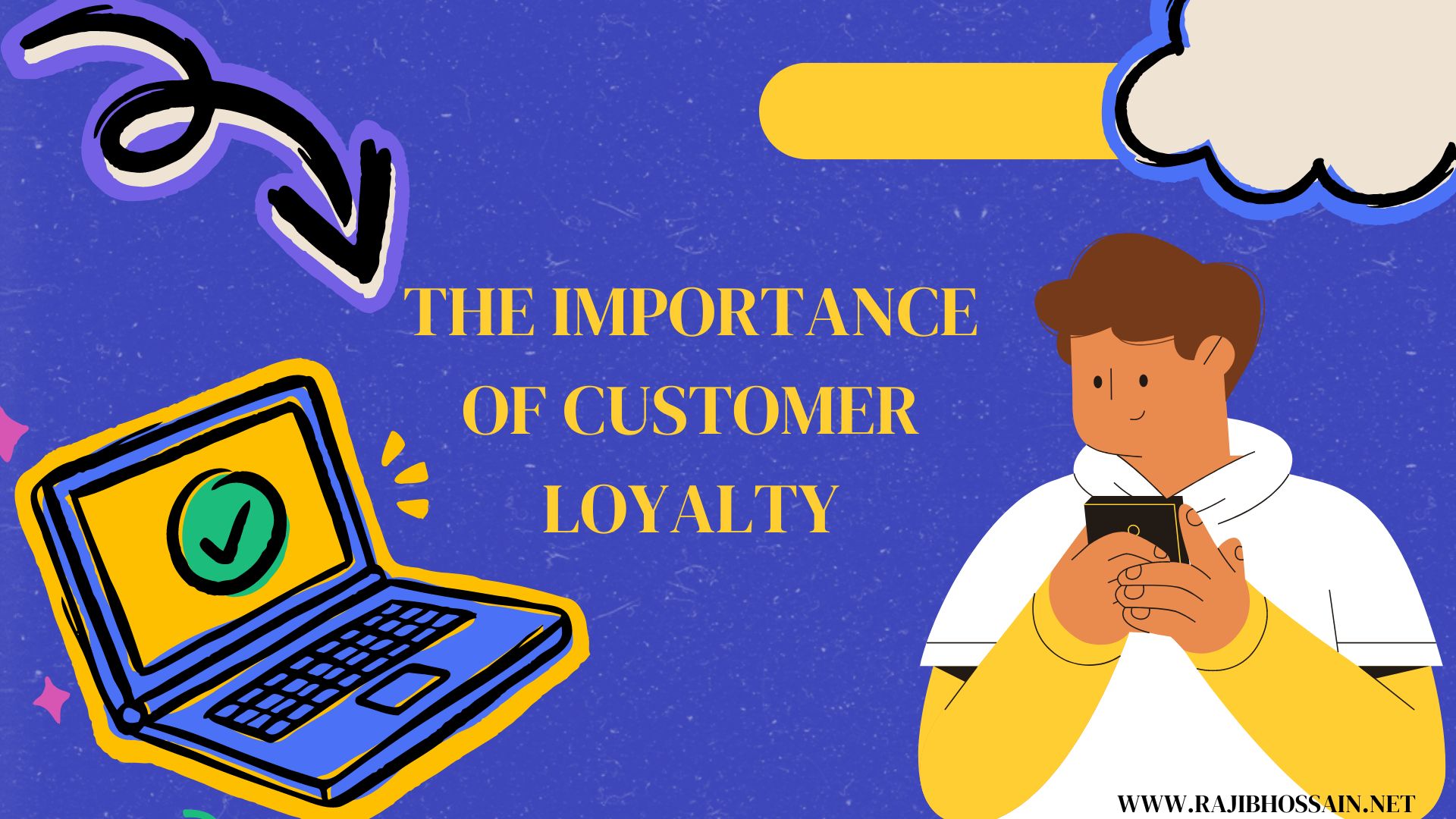Introduction: Beyond the First Sale
In today’s competitive marketplace, acquiring new customers is only half the battle. Retaining them and fostering loyalty is where the real challenge—and opportunity—lies. Customer loyalty goes beyond the first sale; it encompasses the ongoing relationship between a business and its customers. Loyal customers are not only repeat buyers but also brand advocates who contribute significantly to a company’s success. This article explores the importance of customer loyalty and how it serves as a strategic asset for business growth.

The Benefits of Customer Loyalty
Increased Revenue and Profitability
Loyal customers typically spend more over time than new customers. They are more likely to make repeat purchases, try new products or services, and engage with upselling opportunities. According to research, increasing customer retention rates by just 5% can increase profits by 25% to 95% . This consistent revenue stream from loyal customers provides a solid foundation for sustainable business growth.
Reduced Marketing Costs
Acquiring new customers is often more expensive than retaining existing ones. Loyal customers require less marketing effort and are more likely to respond positively to your promotional efforts. They also generate free advertising through word-of-mouth recommendations, reducing the need for costly acquisition campaigns. This lower cost of retention versus acquisition highlights the financial advantages of building customer loyalty.
Enhanced Brand Advocacy
Loyal customers are your best advocates. They share their positive experiences with others, recommend your brand, and often defend it in the face of criticism. This organic promotion is invaluable, as people tend to trust recommendations from friends and family more than traditional advertising. Cultivating a base of brand advocates can significantly enhance your reputation and attract new customers.
Greater Customer Insights
Long-term customers provide valuable insights into your products, services, and overall customer experience. Their feedback can help identify strengths, weaknesses, and opportunities for improvement. Understanding the preferences and behaviors of loyal customers allows businesses to tailor their offerings and strategies to better meet their needs, leading to more targeted and effective marketing efforts.
Increased Competitive Advantage
In a crowded market, customer loyalty provides a significant competitive advantage. Loyal customers are less likely to be swayed by competitors’ offerings or price changes. They are more forgiving of occasional issues and more likely to stick with your brand during challenging times. This loyalty acts as a buffer against competitive pressures and market fluctuations.
How to Foster Customer Loyalty
Deliver Consistent Quality
Consistent quality in your products or services is fundamental to earning and maintaining customer loyalty. Ensure that what you offer meets or exceeds customer expectations every time. Implementing robust quality control processes and regularly reviewing customer feedback can help maintain high standards and build trust.
Build Strong Relationships
Building strong, personal relationships with customers encourages loyalty. This involves regular communication, personalized interactions, and showing genuine appreciation for their business. Remembering their preferences and celebrating milestones like anniversaries or birthdays can create a deeper emotional connection with your brand.
Offer Value Beyond the Product
Providing value beyond the product or service itself can enhance customer loyalty. This could include excellent customer service, helpful content, or exclusive benefits for loyal customers. Offering a superior overall experience makes customers feel valued and encourages them to remain loyal to your brand.
Respond to Customer Needs
Being responsive to customer needs and feedback demonstrates that you care about their satisfaction. Addressing issues promptly, adapting to their preferences, and continuously improving your offerings based on their input can reinforce their loyalty. Show that you are listening and committed to making their experience better.
Create Engaging Loyalty Programs
Loyalty programs are an effective way to incentivize repeat business and deepen customer engagement. These programs can include point-based systems, tiered rewards, or special discounts for frequent buyers. Making the rewards meaningful and attainable encourages customers to continue choosing your brand over others.
Conclusion: Customer Loyalty as a Strategic Asset
Customer loyalty is more than just a metric; it is a strategic asset that drives long-term success. Loyal customers provide steady revenue, reduce marketing costs, and act as brand ambassadors. They offer valuable insights and help build a competitive edge in the market. By focusing on delivering consistent quality, building strong relationships, and responding to customer needs, businesses can cultivate loyalty that sustains growth and profitability.
Investing in customer loyalty is investing in the future of your business. It fosters lasting relationships that benefit both the customer and the company, creating a cycle of mutual success and prosperity.
